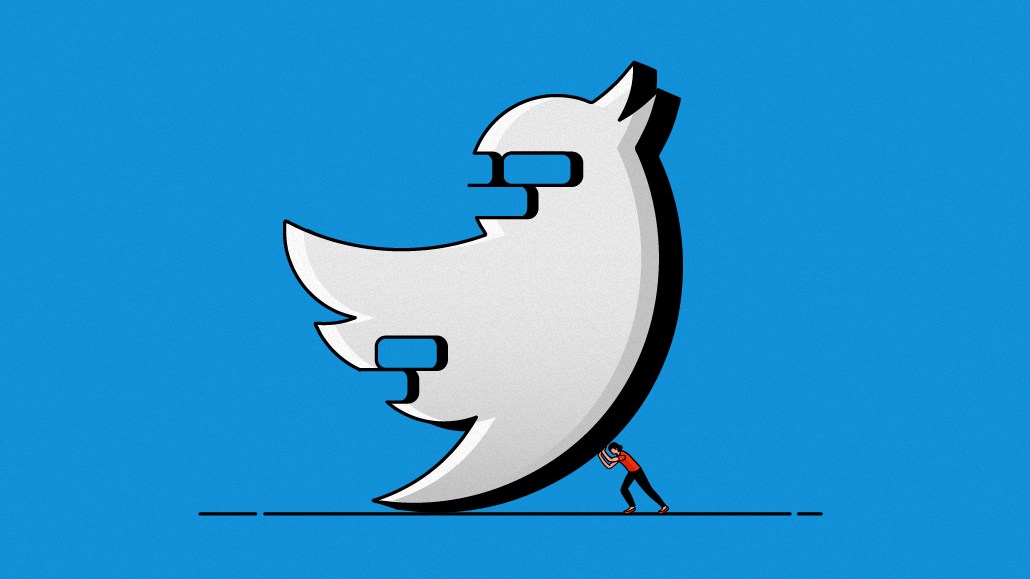Secure your place at the Digiday Media Buying Summit in Nashville, March 2-4
Elon Musk aims to charm marketers with vow to focus on ‘compelling’ Twitter content and transparency

The centerpiece of the first day of the inaugural Possible conference in Miami Beach took place yesterday when Elon Musk — the polarizing but brilliant founder of Tesla and Starlink, and current owner of Twitter — took to the main stage to offer up his version of what Twitter is doing to address the concerns of brand marketers about brand safety on the platform.
In a conversation with NBC Universal’s global chair of advertising & partnerships Linda Yaccarino — who is seen by many as a possible candidate for the CEO position at Twitter, which is currently occupied by his dog Floki — Musk talked of championing citizen journalism while also deriding mainstream media, vowing he would be treated the same way as anyone else on Twitter, and promising freedom of speech while limiting hate speech through a series of community controls.
“People may not be aware of this already, but we have adjacency controls in place that are really quite effective,” Musk told the packed mainstage room where hundreds recorded his comments on their cell phone cameras even after it was rumored that electronic recordings of the session somehow would not be permitted. Additionally, Musk took a handful (several overly fawning), questions from the audience after it was expressly said he would do no such thing.
Whether Musk, who charmed the audience and even got applause for his freedom of speech position, holds true to his words remains to be seen. He certainly tried to woo the roomful of marketers with some of his messaging. “Advertising goes all the way from spam to compelling content,” he said. “And I really want to focus on obviously the compelling content, to make it relevant, make it interesting.”
Rishad Tobaccowala, an author, speaker and advisor who for decades was a high-ranking executive with Publicis Groupe, offered his thoughts on Musk’s comments in a video segment below with Digiday immediately following the Twitter owner’s session with Yaccarino.
More in Media

WTF is a creator capital market?
What is a creator capital market, what does it mean for creators looking to diversify revenue, and why is it so closely tied to crypto?

Media Briefing: Publishers explore selling AI visibility know-how to brands
Publishers are seeing an opportunity to sell their AI citation playbooks as a product to brand clients, to monetize their GEO insights.

Creators eye Snapchat as a reliable income alternative to TikTok and YouTube
Figuring out the Snapchat formula has been very lucrative for creators looking for more consistent revenue on a less-saturated platform.








